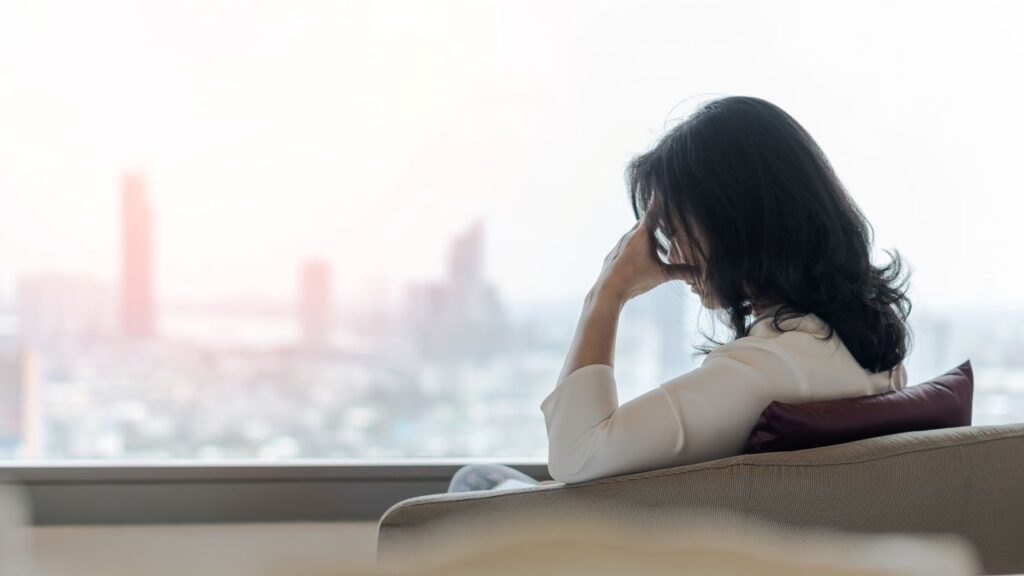Women experience distinct life stages – childhood, youth, adulthood, and older age, each bringing evolving challenges, goals, and triumphs. From puberty and first loves to education, careers, and for some, motherhood, our journeys are dynamic.
Then one day, we’re checking a different age box on forms and entering the phase of ‘older age,’ often accompanied by perimenopause and menopause, sometimes earlier than expected.
As a woman navigating menopause, I’ve realised that equality on paper doesn’t always match lived experience especially when it comes to the invisible load – which is the emotional and mental labour women carry throughout life. There is much written about the invisible load but I’m introducing a new term: the “menopausal load.”
When I searched online to see if such a term existed, the only “load” mentioned was the weight gain during menopause, how delightful. Any male doctor l have seen, despite being brilliant, told me that menopause ‘is a rite of passage’ l have to go through as a woman. The last doctor who told me that l buried him with my eyes as l took of my jacket because the hot flush was making me sweat on a 10-degree day.
So, what do I mean by the menopausal load? It’s part of a broader pattern women experience throughout life, the shifting emotional and mental burdens we carry. These loads aren’t new they evolve with us from girlhood to older age.
Early adulthood: the people-pleaser years
In our twenties and thirties, emotional labour often means being the “good friend,” the “reliable daughter,” or the “supportive partner.” At work, we’re the ones who organise team gifts and mediate tensions often without being asked. The mental health load is quieter but growing. We’re figuring out careers, relationships, and identity. Anxiety and imposter syndrome creep in, but we push through often without naming what we’re feeling.
Motherhood & midlife: the juggling act
At this stage of life for those of us who have become mothers, the emotional labour multiplies. It’s not just remembering school events or managing the household calendar it’s being the emotional anchor for everyone. Even in a supportive partnership, the mental load is often always carried by the woman. The mental health load deepens here. Between career pressures, caregiving, and the quiet loss of personal time, many women experience burnout. But we rarely pause because we’re too busy holding everyone else together. Often, we take pauses in our career or scale back work days and hours to care for our family.
Older age: menopause and the unspoken load
At this stage of life is where my newly coined concept ‘menopausal load’ becomes clearer. I believe the menopausal load is the cumulative and multifaceted burden experienced by women during the menopausal transition. It encompasses the physical, mental, emotional and social impacts of hormonal changes and it’s time we gave it a name. At this stage of life, the mental load includes brain fog, forgetfulness, and difficulty concentrating and the pressure to maintain productivity and emotional stability despite internal shifts. The emotional load encompasses navigating identity changes (e.g., aging, fertility, societal expectations), managing relationships while experiencing emotional volatility and feeling misunderstood or invisible in workplaces and healthcare systems and, the social load includes continuing to perform emotional labour in families and workplaces and the pressure to “push through” without accommodations or empathy.
These ‘loads’ are further compounded by the physical load we carry at this stage of our lives – hot flashes, night sweats, sleep disruption, weight changes, joint pain, fatigue, hormonal shifts affecting energy, libido, and overall wellbeing. The physical load can be incredibly debilitating for many women but we are expected to soldier through.
I remember sitting in a meeting, trying to focus while battling brain fog, deciding whether to take my jacket off or ask for the heater to be turned off and trying to stay awake because l tossed and turned all night and started making mental lists at 3am. But I still took notes, followed up with emails, and checked in on a colleague who seemed off. No one knew I was barely holding it together.
And I’m not alone. In Australia 75 per cent of postmenopausal women under 55 experience hot flushes or night sweats and 28 per cent have moderate to severe symptoms which are linked to a threefold increase in depressive symptoms yet, many women feel unsupported or misunderstood especially in workplaces and healthcare settings. I thought l was beyond the ‘breast is best’ stage only to find myself in the ‘to HRT or not HRT’ stage and be judged by other women for ironically, choosing not to HRT.
Coining the term “the menopausal load” is a powerful way to name and validate the complex experience many women face during menopause that we don’t feel as much at other points in our lives, unless we are living with a chronic illness.
Australia may be climbing the ranks in global gender equality, but for many women, the lived experience of menopause remains largely invisible and unsupported. While we’ve made strides in representation and workplace equity, there’s a silent burden that continues to shape women’s lives during midlife what I call the menopausal load. It’s not just about what’s happening inside our bodies it’s about what we’re still expected to carry while it happens.
By naming this experience the menopausal load, we give language to something that has long been dismissed or misunderstood. We validate the complexity of what women go through and we create space for change.
Become a Women’s Agenda Foundation member and support our work! We are 100% independent and women-owned. Every day, we cover the news from a women’s perspective, advocating for women’s safety, economic security, health and opportunities. Foundation memberships are currently just $5 a month.
Bonus: you’ll receive our weekly editor’s wrap of the key stories to know every Saturday.

